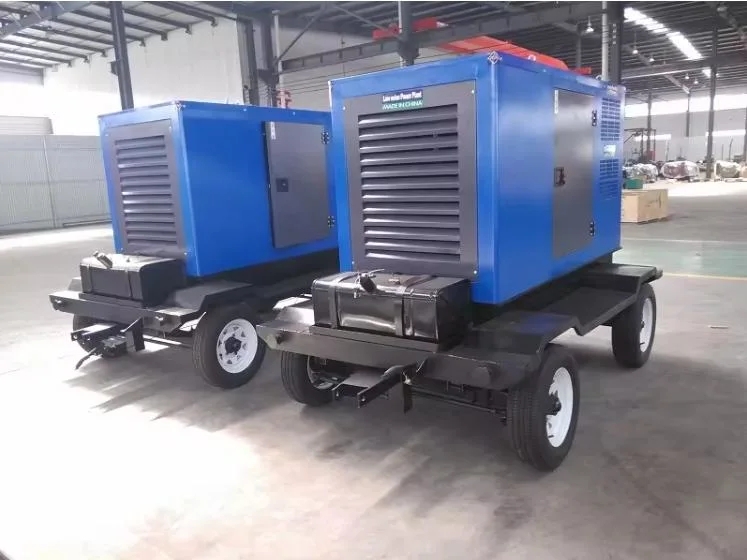Introduction
In today's fast-paced world, where uninterrupted power supply is crucial for various industries and businesses, diesel generators have emerged as a reliable solution for continuous operation. Diesel generators are known for their efficiency, durability, and ability to provide a steady power supply in diverse environments. This article will explore the benefits of diesel generators for continuous operation, their working principles, maintenance requirements, and the factors to consider when choosing a diesel generator for your specific needs.
Working Principles of Diesel Generators
Diesel generators are a type of internal combustion engine that converts diesel fuel into electrical energy. The basic components of a diesel generator include an engine, alternator, fuel system, cooling system, exhaust system, and control panel. The engine is the heart of the generator and is responsible for converting the chemical energy in diesel fuel into mechanical energy. This mechanical energy is then used to drive the alternator, which generates electrical power.
The working principles of a diesel generator can be summarized in the following steps:
1. Fuel Injection: Diesel fuel is injected into the combustion chamber of the engine.
2. 400kw diesel generator for construction sites : The fuel-air mixture is compressed by the piston, leading to an increase in temperature and pressure.
3. Combustion: The fuel-air mixture is ignited by the heat of compression, leading to a controlled explosion that drives the piston downwards.
4. Mechanical Energy: The movement of the piston is converted into mechanical energy that drives the alternator.
5. Electrical Generation: The alternator converts the mechanical energy into electrical energy, which is then supplied to the load.

One of the key advantages of diesel generators is their efficiency in converting fuel into electrical power. Diesel engines are known for their high thermal efficiency, which means they can generate more power from the same amount of fuel compared to other types of engines. This efficiency makes diesel generators an ideal choice for continuous operation where a steady power supply is essential.
Benefits of Diesel Generators for Continuous Operation
1. Reliability: Diesel generators are highly reliable and can provide continuous power supply for extended periods. Unlike other types of generators, diesel generators do not rely on external power sources for ignition, making them suitable for remote locations and critical applications where a stable power supply is essential.
2. Durability: Diesel generators are built to withstand harsh operating conditions and have a longer lifespan compared to other types of generators. The robust design of diesel engines allows them to operate continuously without frequent maintenance or breakdowns, ensuring uninterrupted power supply when you need it the most.
3. Fuel Efficiency: Diesel engines are known for their fuel efficiency, which means they can generate more power with less fuel consumption. This is especially important for continuous operation where fuel costs can be a significant factor in the overall operating expenses.
4. Low Maintenance: Diesel generators require minimal maintenance compared to other types of generators. The simple design of diesel engines and their fewer moving parts make them easier to maintain and less prone to mechanical failures. Regular servicing and inspections can help extend the lifespan of a diesel generator and ensure its optimal performance.
5. Quick Start-Up: Diesel generators have a fast start-up time, which means they can provide power within seconds of a power outage. This quick response time is critical for continuous operation where even a brief interruption in power supply can lead to significant losses.
6. Versatility: Diesel generators are versatile and can be used in a wide range of applications, including industrial facilities, hospitals, data centers, telecommunications towers, and construction sites. Their ability to provide reliable power supply in diverse environments makes them a popular choice for continuous operation.
Factors to Consider When Choosing a Diesel Generator
When selecting a diesel generator for continuous operation, there are several factors to consider to ensure you choose the right generator for your specific needs:
1. Power Output: Determine the power requirements of your equipment or facility to select a diesel generator with the appropriate power output. Consider both the continuous power rating and the standby power rating to ensure the generator can meet your needs under varying load conditions.
2. Fuel Efficiency: Compare the fuel consumption rates of different diesel generators to choose a model that offers the best fuel efficiency. Lower fuel consumption not only reduces operating costs but also minimizes the environmental impact of the generator.
3. Size and Portability: Consider the size and portability of the diesel generator, especially if you need to move it between different locations or use it in temporary installations. Choose a generator that is compact, lightweight, and easy to transport for maximum flexibility.
4. Noise Level: Diesel generators can be noisy during operation, so consider the noise level of the generator and choose a model with soundproofing features if noise is a concern in your application.
5. Cooling System: A reliable cooling system is essential for the proper operation of a diesel generator, especially during continuous use. Look for generators with efficient cooling systems that can maintain optimal operating temperatures under heavy loads.
6. Maintenance Requirements: Consider the maintenance requirements of the diesel generator, including the frequency of servicing, availability of spare parts, and access to technical support. Choose a generator that is easy to maintain and has a reliable support network to ensure minimal downtime.
Conclusion
Diesel generators are an excellent choice for continuous operation due to their reliability, durability, fuel efficiency, and versatility. Whether you need a backup power source for critical applications or a primary power supply for remote locations, diesel generators can provide a steady power supply when you need it the most. By understanding the working principles of diesel generators, their benefits, and the factors to consider when choosing a generator, you can make an informed decision and select the right generator for your specific requirements.
